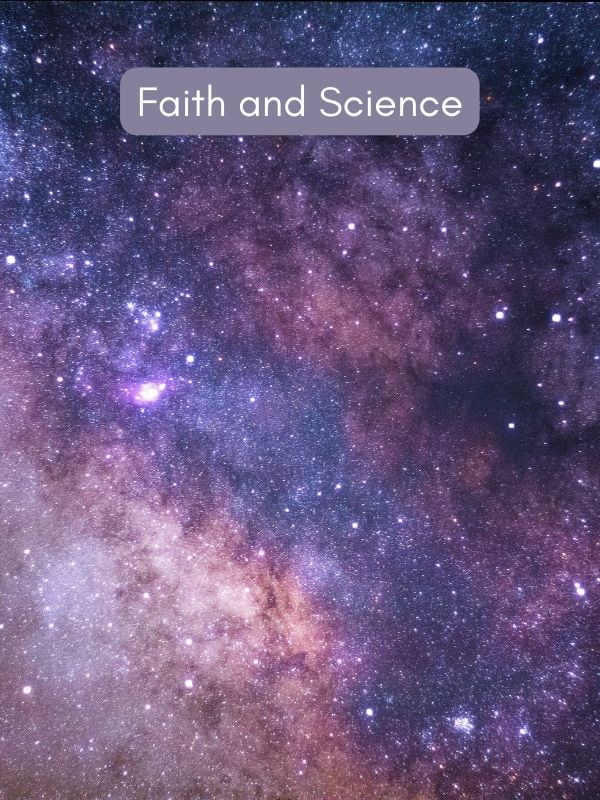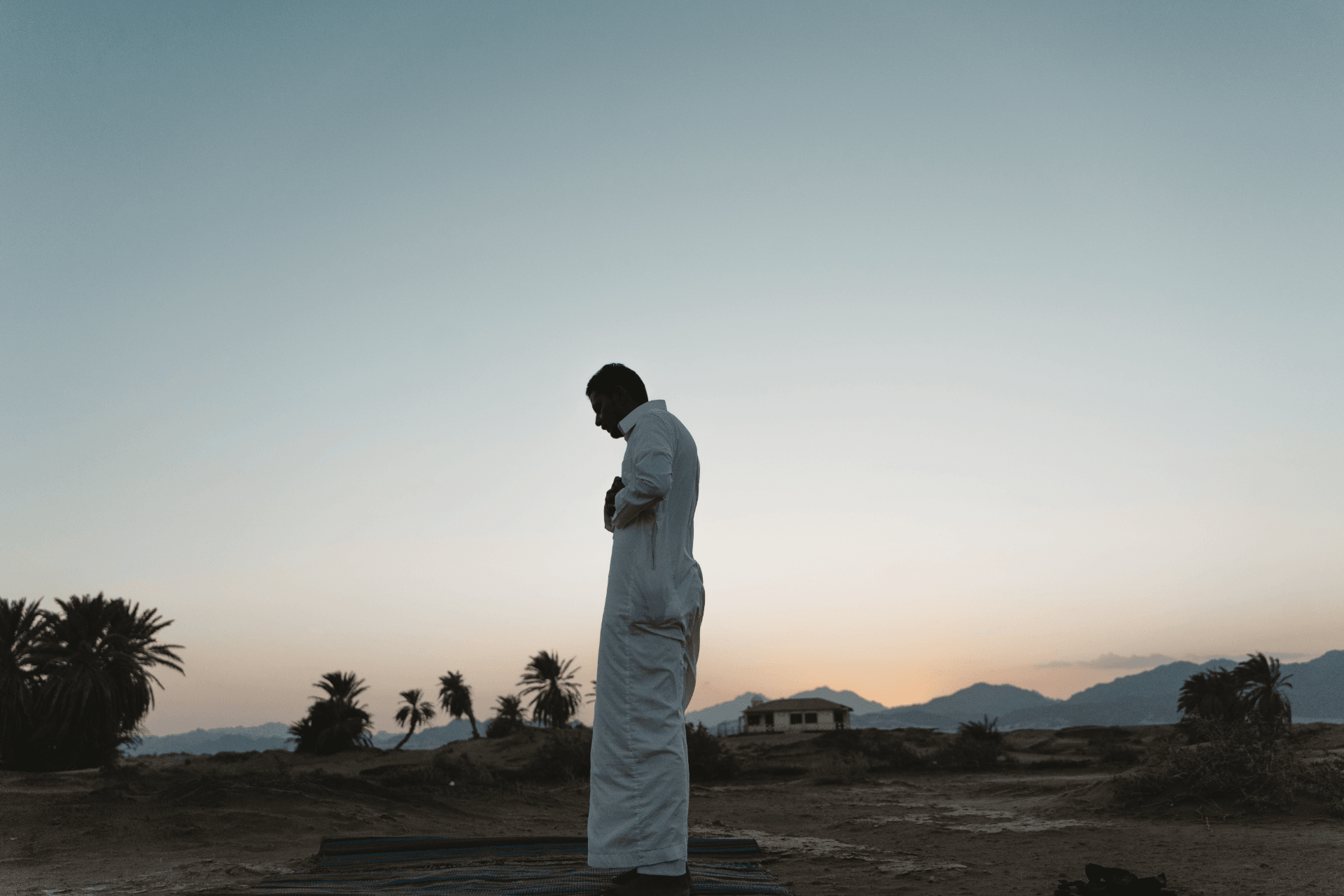Even amidst the complexities of modern life, faith remains a fundamental aspect that holds meaning and purpose for individuals from diverse religious backgrounds.
Today’s piece aims to delve into the fascinating topic of faith. Our post will cover faith’s progression over time, its impact on society and culture, and its relationship with science and morality. We’ll also learn how individuals who don’t adhere to religion incorporate spiritual elements into everyday life.
The Evolution of Faith
Faith has taken on different forms throughout the ages and held differing significance for individuals and communities.
A long time ago, faith was frequently associated with demonstrating a deep respect for formidable divinities. These mighty deities were believed to have dominion over nature and the universe.
As societies became more complex, faith evolved to include the belief in a single, all-powerful God who created the universe and controlled its destiny.
Faith has undergone considerable transformation due to modernisation. The advancement in science and technology prompted deeper reflection among some individuals about established beliefs leading them to drift away from traditional religious practices.
Nevertheless, faith still holds immense significance in people’s lives, offering them a sense of direction and significance beyond the tangible world.

The Role of Faith in the Modern World
Faith can shape societies and cultures, influencing everything from politics to art. It acts as a moral compass for people, guiding them towards making ethical choices and navigating through the intricate web of the contemporary world.
Faith can also unite people, creating a feeling of togetherness and shared beliefs.
On the flip side, faith can sometimes lead to conflict and separation, particularly when it’s employed to rationalise intolerance and prejudice.
In today’s world, learning how to appreciate and comprehend diverse beliefs is crucial, all while encouraging acceptance and inclusivity.
Faith and Science: Can They Coexist?
Debates regarding the correlation between science and faith have raged on throughout history, with no clear consensus emerging to date.
Some argue that maintaining concurrent belief between the two supposes an intrinsic contradiction, while others claim they can synergise rather than contradict each other.
Which view holds true remains an open question for further elucidation and research.
Throughout history, science has come forward with numerous insights that upend pre-existing beliefs- from unravelling secrets about the origins of the universe to exploring complex aspects like human consciousness.
This pursuit for knowledge has led us towards a deeper understanding of our surroundings resulting in significant technological breakthroughs as well as enriching developments in healthcare. On a philosophical note, however, science also poses critical questions that challenge pre-existing religious notions. An example would be doubts about the existence of God being one among them.
However, faith is anchored in the unwavering understanding that life has a grander purpose beyond our own lives.
It provides a moral framework for individuals and a sense of purpose and meaning beyond the material world. But it has also been criticised for being dogmatic and resistant to change.
The debate surrounding whether faith and science coexist has long been discussed by experts worldwide. However, what if they could complement one another instead of contrasting each other? The answer lies in having an unbiased approach from all sides; religion can adjust its core values without compromising belief systems or moral standings when dealing with scientific discoveries or innovative breakthroughs.
For example, religion accepts the theory of evolution while maintaining that this is only one way in which God created life on Earth.

Understanding the correlation between faith and science requires embracing their intricacy and diversity.
When we embrace both faith and science, we can gain a deeper comprehension of ourselves and the world we live in, ultimately discovering significance and direction in our lives.
Faith and Morality: Navigating the Complexities of Belief Systems
Faith has always played a significant role in shaping our moral beliefs and ethical decision-making.
It provides a framework for individuals to follow, helping us navigate the modern world’s complexities. However, this can also lead to conflicts between belief systems, particularly based on different moral codes.
The complexity of faith and morality arises from the varied convictions of different religions regarding ethical behaviour.
An instance highlighting this divergence is their contrasting stances on eating meat – where it’s considered a non-issue for some. In contrast, for others, it runs against moral precepts.
Different religions hold different beliefs regarding the death penalty – some consider it acceptable, while others deem it morally unjustifiable to take a life. These differences can lead to conflicts between individuals and communities, making finding common ground difficult.
In modern times, fostering acceptance and tolerance amongst diverse religions remains incredibly significant.
- To accomplish this objective, fundamental human rights must be upheld alongside equality. This can be achieved by respecting contrasting beliefs while keeping an open mind.
- Faith and morality are intricate issues that warrant careful consideration. However, one way to navigate them effectively is by recognising our shared values amidst our differences. Almost all religions prioritise virtues such as compassion, kindness, and respecting others’ dignity – crucial for cultivating peace in society! Only when working together towards these common aims, do we find a peaceful and just world!
- Education holds great potential for cultivating greater tolerance and understanding among people. By seeking out knowledge on diverse religions and beliefs, we can broaden our perspectives on the world while recognising and respecting its individuals and religious communities. This can assist us in breaking down preconceived notions and biases, ultimately enabling us to create stronger bonds between different communities.
Faith and morality are intricate and diverse concepts that demand an open-minded outlook and reverence for other people’s beliefs.
Concentrating on shared values and encouraging education and comprehension can establish a more peaceful and equitable world where everyone is treated with honour and consideration.

Living with No Religion: Finding Spirituality and Meaning Beyond Belief
Faith holds significant importance in the lives of many individuals as it offers a sense of direction, purpose, and ethical principles to abide by.
But what about those who don’t adhere to a specific religion? Is it possible to find spirituality and meaning beyond belief?
The answer is yes. While religion provides a structured approach to spirituality, it is not the only way to find meaning and purpose in life. Many non-religious individuals find spirituality in nature, art, music, or other forms of creative expression. They may feel connected to something greater than themselves: the universe, humanity, or the natural world.
Spirituality’s role in non-religious individuals’ lives is an area of ongoing research. Research indicates that having a spiritual connection can benefit mental health and overall well-being, regardless of one’s religious beliefs. [1] [2] It can provide comfort and hope in difficult times and is a source of inspiration and creativity.
The benefits of seeking spirituality without relying on organised religion are plentiful- including the ability to discover different beliefs and practices independently.
Those who do not follow a given faith system can leverage many spiritual traditions like meditation, shamanism, or yoga as they tailor-make individualistic approaches to their needs and beliefs.
To put it differently, there are indeed obstacles one can encounter when choosing the non-religious path. A major hurdle is finding a place where they feel they belong. This is more difficult in areas dominated by religion. Those who do not follow any faith may face hostility and attitudes rooted in prejudice from others who hold different beliefs. Therefore, seeking assistance from others during trying times can likewise become problematic.
Living without a specific religious affiliation should be recognised as a legitimate and significant alternative lifestyle option.
Although religious organisations provide systematic approaches toward nourishing one’s spirituality, it does not cater to everyone’s needs.
Anyone with no belief in religion may find spiritual enrichment in several ways, such as immersing themselves in nature or indulging in art forms like music or dance- anything that helps one connect with oneself better and experience something beyond the physical realm.
Conclusion
Faith is an intricate and diverse concept that holds immense importance in the modern world.
Whether we follow a particular religion or not, faith provides a sense of purpose and meaning beyond the material world. It has the power to shape societies and cultures, providing a moral framework for individuals to follow.
Although differences in spiritual beliefs can often create conflicts, we must sincerely promote acceptance and mutual understanding.
By acknowledging a force beyond ourselves. We stand a better chance of discovering significance while navigating the intricacies of contemporary life with compassion and kindness.
References
[1] Koenig, Harold. (2008). Religion and mental health: What should psychiatrists do?. Psychiatric Bulletin. 32. 201-203. 10.1192/pb.bp.108.019.
[2] Turbott J. (1996). Religion, spirituality and psychiatry: conceptual, cultural and personal challenges. The Australian and New Zealand journal of psychiatry, 30(6), 720–730. https://doi.org/10.3109/00048679609065037
Images Used
https://www.pexels.com/photo/photo-of-man-wearing-traditional-clothes-5988915/





0 Comments